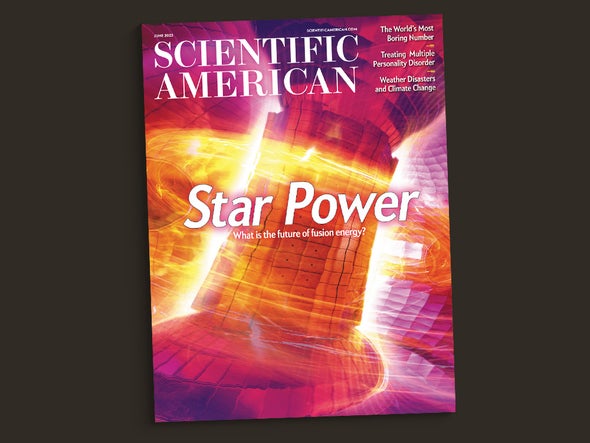How electrons move, multiple personalities form and hookworms spread among pet dogs
Thank you for reading this post, don't forget to subscribe!
I admit I was skeptical when we first started discussing a story proposal about treating a person with multiple personalities. Weren’t some of the classic cases exaggerated or made up? But the fascinating account of “Ella” by therapist and anthropologist Rebecca J. Lester explains how dissociative identity disorder can develop and manifest. It’s a hopeful and generous story that takes us inside the therapeutic process and reveals how someone can start to heal from extreme trauma.
When a weather disaster strikes, people want to know whether climate change is to blame. And if so, to what degree? The field of “attribution science” has advanced dramatically in the past decade. As investigative journalist Lois Parshley writes, researchers are now able to say how much worse or more likely floods, hurricanes, wildfires, droughts, and other disasters were made by the human-caused climate crisis. This knowledge can help people respond to unfolding disasters and plan for future ones.
Drug-resistant hookworms are spreading among pet dogs, and researchers have traced their origins to greyhounds raised for racing. The parasites can kill puppies and occasionally cause nasty infections in people. Science journalist Bradley van Paridon describes how the superparasite evolved and traveled through greyhound racetracks, rescue dogs and dog parks.
Electrons move in mysterious ways. They’re too fast to observe in detail as they jump through crystals or perform feats of quantum tunneling that let them escape energy barriers. To understand the bizarre properties of matter, physicists are creating models made of light. Physicist Charles D. Brown II shares how his light-based version of graphene lets him study how particles behave in a crystal lattice. In the author’s words, “Quantum physics is a trip!”
Some of the most distinctive languages on Earth are still spoken, but just barely, by people who live on the Andaman Islands off the coast of India. Andamanese people arrived to the archipelago about 50,000 years ago, and according to genetic and linguistic studies, they were largely isolated until recently. Linguist Anvita Abbi worked with the last speakers of several local languages to preserve and understand their heritage. She discovered that the grammar of Andamanese languages is fundamentally based on the parts of the body, unlike any known language family.
What’s the future of fusion? Is it always going to be another 20 or 30 or 50 years away? In our cover story, author Philip Ball examines recent advances in fusion energy, including the first reaction that created more energy than was used to trigger it. Fusion will not be part of our urgently needed transition from fossil fuels to renewable energy. But there’s still a chance it could succeed … in another 20 or 30 or 50 years. Ball cuts through the hype and explores the physical limitations and opportunities of the energy that powers stars.
This article was originally published with the title “Big Questions” in Scientific American 328, 6, 4 (June 2023)
doi:10.1038/scientificamerican0623-4
ABOUT THE AUTHOR(S)

Laura Helmuth is editor in chief of Scientific American. Follow her on Twitter @laurahelmuth Credit: Nick Higgins

